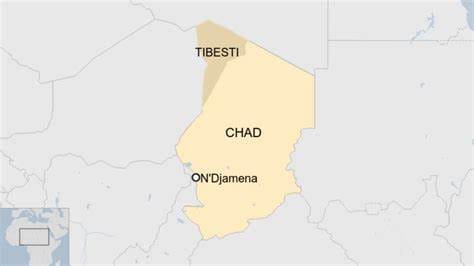Chad’s government has reached a peace agreement with armed factions in the northern part of the country, aiming to resolve long-standing conflicts over gold resources in the region.
The deal, signed on Sunday, involves two groups operating in the Miski region of Tibesti province, which lies near the Libyan border. The negotiations were led by Saleh Kebzabo, a government mediator appointed to oversee the process.
The unrest between the Chadian forces and local armed groups intensified in 2019 and 2020, largely driven by competition over gold mining in the Miski area, which is known for its significant gold deposits.
Under the terms of the agreement, all mining activities in the region will be halted, and existing mining permits will be revoked. A new geological survey is set to begin in order to assess the full extent of the area’s gold reserves and determine future management plans.
For several years, local armed groups, including the Miski Self-Defence Committee, had restricted government access to the region. Previous attempts to reach a resolution, including agreements in 2019 and 2023, failed due to lack of implementation and breakdowns in negotiations.
Speaking at the signing ceremony, Djimet Chava, leader of the Miski Self-Defence Committee, expressed cautious optimism about the new deal. “It is important for both sides to respect their commitments,” he stated. “Even if challenges arise, we are committed to negotiating and avoiding violence.”
The peace agreement presents an opportunity to address the instability in the Miski region, which has been exacerbated by competition over valuable resources. If successful, the deal could pave the way for more effective resource management and improved relations between the government and local armed groups. However, the true test will be the implementation of the agreement and ensuring all parties honor their commitments.



